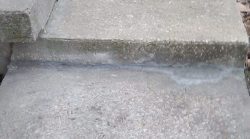Your home’s foundation is a critical element in maintaining the structural integrity and stability of your house. But did you know that the soil conditions underneath your foundation play a crucial role in its overall health and support? Understanding the role of soil conditions is essential in ensuring the longevity of your home’s foundation. In this blog post, we’ll take a closer look at the relationship between soil conditions and foundation health.
Soil Types and Their Impact on Foundation
Different types of soil have varying properties that can affect the stability of a foundation. Here are some common soil types and their impact on foundation health:
- Expansive Soils: Expansive soils, also known as clay soils, have a high clay content that can absorb and retain water. During wet periods, expansive soils can swell, exerting pressure on the foundation walls and causing them to shift or crack. Conversely, during dry periods, expansive soils can shrink, causing the foundation to settle or sink.
- Sandy Soils: Sandy soils are characterized by larger particles that drain water quickly. While sandy soils are less prone to swelling and shrinking compared to expansive soils, they can still pose challenges to foundation stability due to their lower bearing capacity and potential for erosion.
- Loamy Soils: Loamy soils are a combination of clay, silt, and sand and are considered ideal for building foundations as they provide good drainage and stability. However, the composition and properties of loamy soils can vary, and it’s crucial to assess their characteristics to ensure proper foundation support.
- Organic Soils: Organic soils are typically made up of decomposed plant matter and are not suitable for supporting foundations. Organic soils are highly compressible and can settle significantly, leading to foundation settlement and structural issues.
Effects of Soil Moisture on Foundation
The moisture content of the soil also plays a crucial role in the health of your home’s foundation. Changes in soil moisture can result in significant movement or shifting of the soil, which can affect the stability of the foundation. Here are some effects of soil moisture on foundation health:
- Overly Wet Soil: Excessive moisture in the soil can cause it to expand, resulting in increased pressure on the foundation walls and potential shifting or cracking.
- Overly Dry Soil: On the other hand, overly dry soil can shrink and settle, leading to foundation settlement and sinking.
- Soil Saturation: Saturation of the soil due to poor drainage or improper grading can also result in increased pressure on the foundation walls, leading to potential damage.
Foundation Solutions for Soil-Related Issues
If your home’s foundation is facing challenges related to soil conditions, it’s essential to take appropriate measures to address them. Here are some common foundation solutions for soil-related issues:
- Foundation Underpinning: This involves stabilizing the foundation by adding additional support, such as helical piers or steel push piers, to transfer the weight of the structure to more stable soil layers.
- Moisture Management: Proper moisture management techniques, such as installing gutters, downspouts, and proper grading, can help prevent excessive moisture or saturation of the soil around the foundation.
- Soil Stabilization: Techniques such as chemical injection or soil modification can be used to stabilize expansive soils and reduce their potential for swelling and shrinking.
- Drainage Improvement: Improving the drainage system around the foundation, such as installing French drains or surface drains, can help redirect water away from the foundation and prevent soil saturation.
Conclusion
The soil conditions underneath your home’s foundation play a crucial role in its overall health and support. Understanding the characteristics of different soil types and their impact on foundation stability, as well as managing soil
moisture levels, is essential in ensuring the longevity and stability of your home’s foundation. If you notice signs of foundation issues, such as cracks in walls or floors, doors and windows that stick, or uneven floors, it’s important to consult with a professional foundation repair expert to assess the soil conditions and recommend appropriate solutions.
At Advanced Systems of Northeast Kansas, we understand the importance of soil conditions in foundation health. Our team of experienced foundation repair specialists can assess the soil conditions at your property, identify any issues, and provide effective solutions tailored to your home’s specific needs. From foundation underpinning to moisture management and soil stabilization techniques, we have the expertise and equipment to ensure the stability and integrity of your home’s foundation.
Don’t let soil conditions jeopardize the health of your home’s foundation. Contact Advanced Systems of Northeast Kansas today for a comprehensive foundation evaluation and reliable solutions to keep your foundation strong and stable for years to come. Schedule a consultation with our experts and take the first step in protecting your home’s most valuable asset – its foundation.





